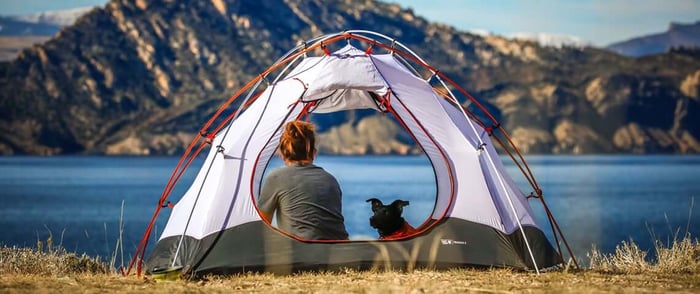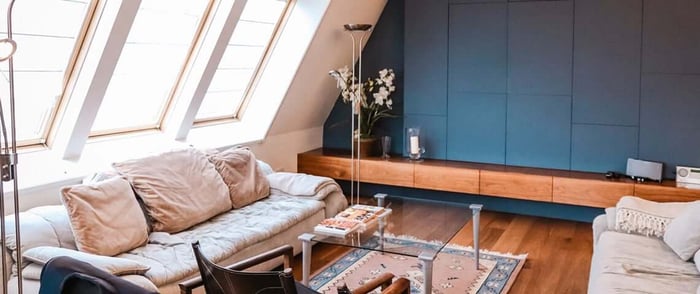Your camping gear can quickly overrun your living area if you don't know what to do with it. Here's your crash course in camping storage ideas to increase space and serenity.
As any camping enthusiast knows, there's a lot of gear and equipment involved for an activity that doesn't take up nearly as much time as you'd like. The fresh air, open spaces, and sounds of nature - if only there was more time to spend in the great outdoors!
For all of the time, you don't spend camping, your camping gear sits around waiting for your next big adventure. When you're not busy trekking through the wilds of the La Cloche Mountains, you need somewhere to store tents, sleeping bags, and charming tin mugs that make your wanderings possible.
If that sounds like you, it might be time for a crash course in storage for campers. These camping storage ideas will help you safely and effectively store all of your camping gear until it's time to pack up the car and venture out once again.
Tip #1: Clean Everything as Soon as You Get Home
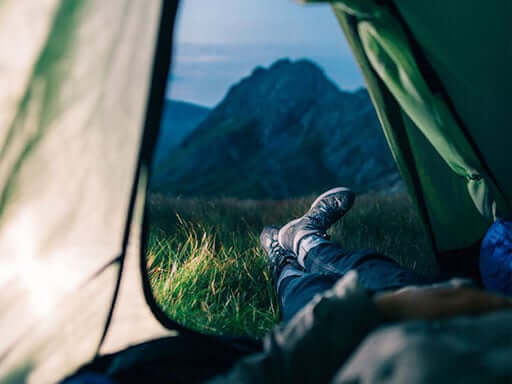
Among the most important camping storage items to tackle is to clean everything. Take an hour or so shortly after you return from your trip to:
- Set up the tent in a dry and/or sunny spot and let it air out. This will remove moisture and make it easier for you to sweep off the grass, sticks, bugs, and other gifts of the forest or plain.
- Wash your sleeping bags and throw blankets in the laundry. Although they may not look dirty, this is an important step to get rid of critters that might cause trouble, such as ticks.
- Wash your dishes. It's fine to use freshwater that's available to wash up while on the trail, but when you get home, it's smart to disinfect everything. Use hot water and soap or run your items through the dishwasher to remove potential pathogens from natural water sources.
- Clean equipment. Take the time to clean your nice equipment carefully. Remove the tank from your portable stove and give it a good scrub, wipe down your collapsible tables and chairs, and shake out tarps (wiping them if necessary).
Another great idea is to keep a "camping cleaning kit" on hand, both while traveling and with your stored items. Include a small bottle of Earth-friendly cleanser, a few rags, and a sewing kit. That way, you're prepared for the worst while out or at home.
Tip #2: Create Individual Spaces for Each Item
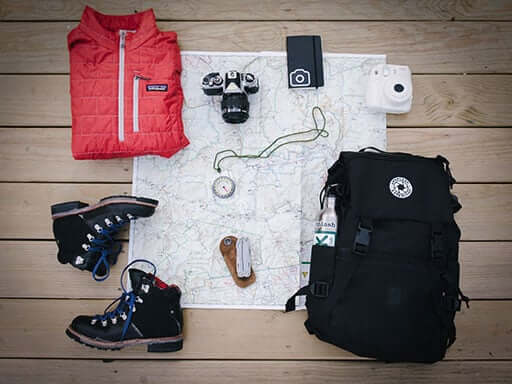
If you're an experienced camper - whether alone weekend warrior or an every-single-summer kind of family - then you know how stressful it can be to misplace an important item like the lantern, the stove, or a mattress pad.
The answer to this is simple: Have a dedicated space for every single item. While this may seem like one of the most daunting storage ideas for camping gear, it's actually pretty easy to execute. Here's how it's done:
- Buy several large storage tubs with tight-fitting lids. Rubbermaid is always a good brand, and the tub sizes make for perfect stacking in both garages and vehicles on the go.
- Organize items by category. Put bedding in one pile, kitchen items in another, and toiletries + medical supplies in a third. (Make sure you ALWAYS have redundant copies of important medical supplies, such as EpiPens or rescue inhalers.)
- Mark each bin with items inside.Using a piece of printer paper and a Sharpie, inventory each pile and write it clearly on the list.
- Attach the list to the underside of each lid with packing tape.
- Make a smaller label with the category name and affix it to the front of the storage container (or whatever side will be facing you once you put it away).
- If you backpack, place your backpacks in a container as well to protect them from musty attics, damp garages, or mildew-prone basements. Ditto with any daypacks, camera bags, or fanny packs you use when camping. Label accordingly.
- Load everything in, et voilã! Enjoy your new system.
If you don't want to buy tubs, then here's another of our favorite camping storage ideas: switch them out for old moving boxes. Just make sure you store them somewhere dry and free of critters, as boxes are not very good at repelling moisture or insect interest.
Tip #3: Protect Your Gear in Storage
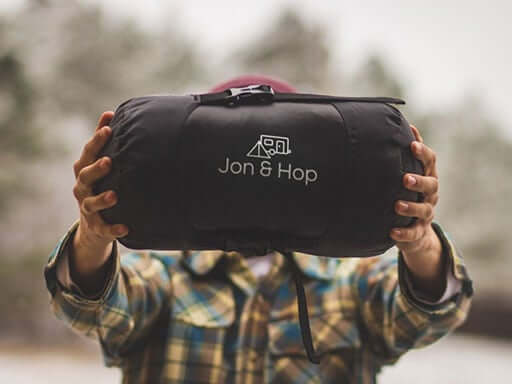
Although your gear probably won't experience much jostling while sitting in storage, there are other challenges it can face.
For instance, a repeatedly folded tent will eventually tear and become leaky along the fold lines, especially the tarp material at the bottom. For that reason, one of the smartest things you can do is to roll rather than fold your tent. It's guaranteed to last much longer.
Another important storage tip is to keep your possessions out of sunlight. UV rays are destructive to many fabrics and polymers. They can degrade waterproofing and, ironically, UV protection on surfaces. It's also not good for plastics to sit in the sun, especially if you eat from them. So store your gear somewhere cool and dry.
If the item is delicate, make sure it has enough padding to protect it against an accidental bump or fall from a shelf. Keep your stove in its case or folded between layers of clothing or bedding. Keep binoculars, compasses, tripods, and other gear clean and in cases.
Tip #4: Give Your Sleeping Bags a Home
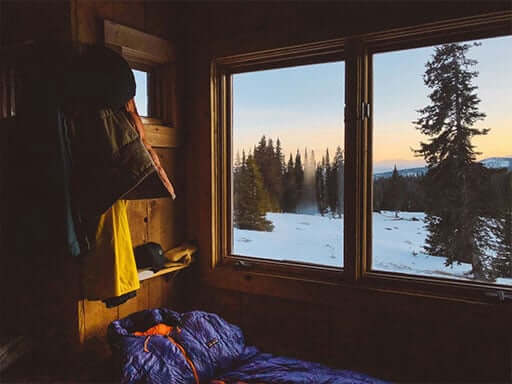
As far camping storage ideas go, this one might not seem intuitive, but we'll tell you anyway: You should try to hang up your sleeping bag.
Most sleeping bags these days are filled with either down or cutting-edge filling that mimics the warmth-maximizing properties of real down. In either case, remaining squashed for long periods of time in a sleeping bag case can make them less effective.
Instead, hang them up on the back of a closet or in a spare bedroom. This will keep them fluffy and functional for years... if not decades.
Tip #5: Use All the Space Available to You
If you want to keep your home decluttered, especially in a small space, then it's important to use that space well. Before you pack up your gear for storage, take a look at each tub and item to be sure you're maximizing its usefulness.
When you store backpacks, for example, can you store anything inside them? Perhaps you could keep your water bottles inside your day packs or keep dog bowls inside their tubs of portable food. And if you still require more space...
Tip #6: Get a Storage Unit If You Need To
It might seem silly to get a storage unit for your camping gear, but it's not. Today's storage units are compact, climate-controlled, and accessible - a far cry from the sprawling warehouses or poorly insulated sheds of previous decades. If you live in a small house or apartment that lacks space, then a storage unit makes perfect sense.
Plus, a residential storage unit makes it easier to move, renovate, plan for the holidays, and anything else you might want to do in or around Toronto. Don't wait to perfect your organizational system... put these camping storage ideas to use today!











